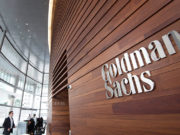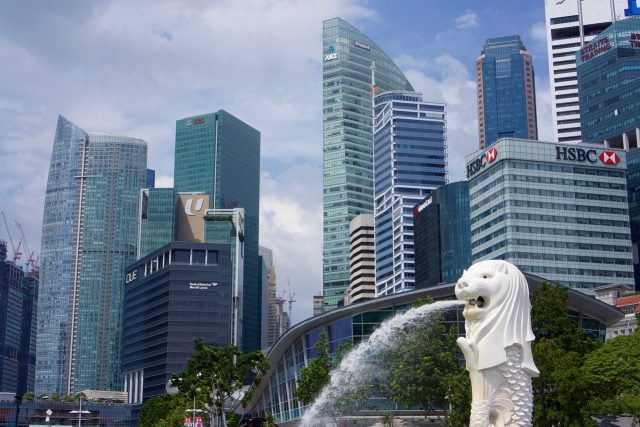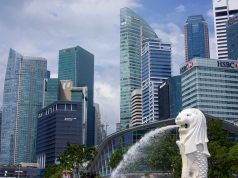The Economist Worldwide Cost of Living 2022 Report: Most Expensive Cities are Singapore & New York, Effect of Higher Interest Rate Kicks-in in 2023 and Consumer Price Inflation to Fall from 9.4% to 6.5% in 2023
10th December 2022 | Hong Kong
The Economist has released the Worldwide Cost of Living 2022 Report, providing key data & insights into the most expensive cities & cost of living worldwide. The most expensive cities to live in are Singapore & New York, and the top 5 most expensive cities includes Tel Aviv, Hong Kong & Los Angeles. The biggest price increase items are Petrol and Gas & Electricity, with Petrol increasing 22% on average, and in Western Europe Gas & Electricity increasing 29% on average. Price increase is expected to ease in 2023 as effect of higher interest rate kicks in, alongside a slowing economy. Consumer price inflation is also forecast to fall from 9.4% to 6.5% in 2023. View key summary below | View: Report
“ Most Expensive Cities are Singapore & New York, Effect of Higher Interest Rate Kicks-in in 2023 and Consumer Price Inflation to Fall from 9.4% to 6.5% in 2023. “
The Economist Worldwide Cost of Living 2022 Report

The Economist Worldwide Cost of Living 2022 Report
Key Findings:
- Cost of living prices increased 8.1% (local currency) on average in the last 12 months
- Caused by Russia-Ukraine conflict and COVID-19 restrictions in China
- Most Expensive cities: Singapore & New York
- Top 5 Most Expensive Cities: Singapore, New York, Tel Aviv, Hong Kong & Los Angeles
- Most Expensive Cities in Asia: Singapore, Hong Kong
- Top 5 Biggest Increase: Moscow, St Petersburg, Atlanta, Charlotte, Indianapolis
- Top 5 Biggest Decrease: Stockholm, Luxembourg, Lyon, Osaka, Manchester
- Most price increase item: Petrol, Gas & Electricity
- Most price item: Petrol, 22% (local currency) increase on average – caused by higher oil prices and stronger USD
- Most price item in Western Europe: Gas & Electricity, 29% (local currency) increase on average
Observations
- Consumer Prices: Food & households goods prices increased due to trade restrictions. Prices for recreational goods & services are flat, reflecting softer demand as consumers focus on spending on essentials.
- Interest Rate: Price increase to ease in 2023 as effect of higher interest rate kicks in, with a slowing economy.
- Supply Chain: Supply-chain blockages have started to ease, and freight rates to decrease.
- Economist Forecast: Consumer price inflation to fall from 9.4% to 6.5% in 2023
Top 10 Most Expensive Cities
- No. 1 – Singapore, New York
- No. 3 – Tel Aviv
- No. 4 – Hong Kong, Los Angeles
- No. 6 – Zurich
- No. 7 – Geneva
- No. 8 – San Francisco
- No. 9 – Paris
- No. 10 – Copenhagen, Sydney
Biggest Increase in the last 12 months (Most Expensive Cities)
- Moscow – Rank 37
- St Petersburg – Rank 73
- Atlanta – Rank 46
- Charlotte – Rank 53
- Indianapolis – Rank 53
- San Diego – Rank 17
- Mexico City – Rank 43
- Saipan – Rank 46
- Portland – Rank 46
- Boston – Rank 21
Biggest Decrease in the last 12 months (Most Expensive Cities)
- Stockholm – Rank 99
- Luxembourg – Rank 104
- Lyon – Rank 90
- Osaka – Rank 43
- Manchester – Rank 73
- Nouméa – Rank 64
- Brussels – Rank 64
- Douala – Rank 128
- Busan – Rank 106
- Tokyo – Rank 37
The Worldwide Cost of Living is a twice-yearly survey conducted by EIU that compares more than 400 individual prices across more than 200 products and services in 172 cities (173 last year, when Kiev was included). Data for the survey, which has been carried out for more than 30 years, are collected each March and September by our global team of researchers. They are then compiled into an index by our team of economists for publication in June and December. The survey has been designed to enable human resources and finance managers to calculate cost-of-living allowances and build compensation packages for expatriates and business travellers. It can also be used by consumer goods firms and other companies to map pricing trends, determine optimum prices for their products across cities and understand the relative expense of a city to formulate policy guidelines.
To collect the data, each researcher has a list of more than 200 specified products and services to research, with more than 50,000 individual prices collected every six months. These include prices for food, drink, clothing, household supplies and personal care items, home rents, transport, utility bills, private schools, domestic help and recreational costs. Items are updated or revised periodically to reflect shifts in purchasing habits. For example, in the latest survey we have revised indicators such as those for mobile-phone services, and for taxis and other ride-hire services. To gather the price data, our researchers survey a range of stores, including supermarkets, mid-priced stores and higher-priced speciality outlets, as well as an array of service providers. The reported prices are not the recommended retail prices or manufacturers’ costs, but the actual costs charged. Our economists then convert the price data into a central currency (the US dollar), using the prevailing exchange rate and weighting to achieve comparative indices. The index uses an identical set of weights that is internationally based. Items are individually weighted across a range of categories, and a comparative index is produced using the relative difference by weighted item. For the purposes of this report, all cities are compared with a base city, New York City, which has an index score of 100. The survey can be accessed via the data tool or our purpose-built website; these allow for city-to- city comparisons.
About Economist Intelligence Unit
EIU offers deep insight and analysis of the economic and political developments in the increasingly complex global environment; identifying opportunities, trends, and risks on a global and national scale. Formed in 1946, with more than 70 years of experience, it is ideally positioned to be a commentator, interpreter and forecaster on the phenomenon of globalisation as it gathers pace, enabling businesses, financial firms, educational institutions and governments to plan effectively for uncertain futures.
Sign Up / Register
Caproasia Users
- Manage $20 million to $3 billion of assets
- Invest $3 million to $300 million
- Advise institutions, billionaires, UHNWs & HNWs
Caproasia Platforms | 11,000 Investors & Advisors
- Caproasia.com
- Caproasia Access
- Caproasia Events
- The Financial Centre | Find Services
- Membership
- Family Office Circle
- Professional Investor Circle
- Investor Relations Network
Monthly Roundtable & Networking
Family Office Programs
The 2025 Investment Day
- March - Hong Kong
- March - Singapore
- July - Hong Kong
- July - Singapore
- Sept- Hong Kong
- Sept - Singapore
- Oct- Hong Kong
- Nov - Singapore
- Visit: The Investment Day | Register: Click here
Caproasia Summits
- The Institutional Investor Summit
- The Investment / Alternatives Summit
- The Private Wealth Summit
- The Family Office Summit
- The CEO & Entrepreneur Summit
- The Capital Markets Summit
- The ESG / Sustainable Investment Summit










































